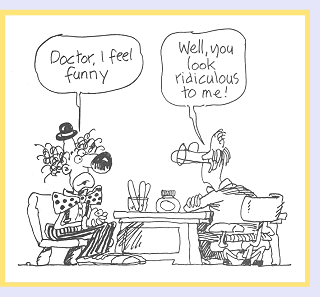On April 23
rd, Dr. Don Berwick gave a lecture at Yale School of Medicine for the Humanities in Medicine series. Each lecture in the series is named after someone special. This particular lecture was named after
Dr. Morris Dillard, who was actually my interviewer when I was applying to Yale medical school. Dr. Dillard, who I guess is about 80 years old, is still very sharp and active in the Yale clinical community. In fact, he was the one who stood at the door to the lecture room, and personally greeted everyone. When he saw me, I worried that he would not remember or recognize me. Immediately, however, he smiled at me, and made bowing motions with his arms as if he was playing a violin. He had remembered me after all, recalling our interview when we had talked about me playing the violin during medical school and afterwards. He still remembered this aspect of me, over a year later.
Don Berwick’s lecture was about many things. As a first-year medical student, what I took away from the talk was the importance of humanism, a concept that is repeatedly thrown at us in our pre-clinical clerkship course, but which rarely sinks in unless delivered with inspiration and precision. At this early stage, when we are beginning to develop our habits, routines, and attitudes regarding helping the patient, learning about humanism is critically important.
We were told about being a humanistic doctor. Dr. Berwick’s personal experience of learning about humanism came, in part, from one of his patients at Children’s Hospital in
Boston, where he was an attending. He described a young 14-year old boy, with a chronic illness, who had been admitted to the hospital over 80 times. This boy told him three ways to be a better doctor. First, he said, please, please, tell me what you are going to do to me, before you do it. Second, talk to each other more (and this point was directly related to a larger topic of the talk, the fragmentation of the health care system). Third, ask
me (the patient) for help. Patients often know more about their condition than their doctors can ever hope to know. So, it is our responsibility to ask.
In a very moving manner, Dr. Berwick shared with us something very personal about his own health and what his health means to him, something that none of his own doctors know about, which allowed us—future, current, and retired physicians—to experience first-hand how incomplete our ability to care for our patients is if we never ask, what do
you want? What does your health mean to
you?
Finally, always thank your patient. Thank them for coming in, thank them for sharing their secrets with you, thank them for placing their trust in you. Dr. Berwick made these points in reference to Dr. Dillard, who continues to exemplify the best humanism a doctor can have. If Dr. Dillard is able to remember that I play the violin, over a year later, I have no doubt how grateful his patients must be for his strong sense of genuine care and appreciation for others.

-Adam Sang
1
st year med student






